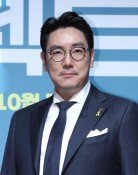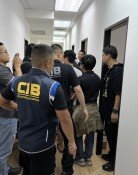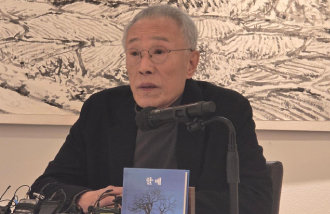Samsung's operating profits surge 10fold year-on-year
Samsung's operating profits surge 10fold year-on-year
Posted April. 06, 2024 07:52,
Updated April. 06, 2024 07:52
Samsung Electrics experienced a remarkable turnaround in the first quarter of 2024, propelled by the semiconductor market rebound and robust sales of its AI-based Galaxy S24 model. Operating profits surged 10fold compared to the previous year, a significant shift for its Device Solutions Division after five consecutive quarters of losses. This transformation marks the end of a prolonged 'tunnel' of business downturn, instilling a sense of optimism in the market.
On Friday, Samsung Electrics unveiled its consolidated sales revenue of 71 trillion won and operating profit of 6.6 trillion won for the first quarter of 2024. Sales revenue grew by 11.4% compared to the previous year, returning to the 70 trillion won range after five consecutive quarters. Operating profits surged by 931.3%, surpassing the total annual operating profits for 2023, which stood at 6.57 trillion won. This figure exceeded the financial community's consensus, which anticipated a 22.2% increase to 5.4 trillion won, sparking intrigue among analysts.
Industry sources attribute the robust performance to the Device Solutions Division, which was the hardest hit by the semiconductor memory downcycle. Despite this, the division managed to generate over one trillion won in operating profits, showcasing its resilience. The Device Solutions Division began declining in the first quarter of 2023, posting a deficit of 14.78 trillion won, but has since bounced back, reassuring those interested in the semiconductor industry.
In the semiconductor industry, it's widely believed that the production cutbacks by SK hynix and Micron in the fourth quarter of 2022, followed by Samsung in the second quarter of 2023, are now bearing fruit. These strategic moves, coupled with the increasing demand for high-value-added products such as High Bandwidth Memory (HBM) used in AI chips, are contributing to the upward trend.
“The current upswing in the semiconductor business relies heavily on improved inventory assessment and anticipated server demands,” said Ahn Ki-hyun, an executive director of the Korean Semiconductor Industry Association. “There is a need for further actions, including lowering benchmark interest rates, to stimulate and rebound demand for high-tech devices such as mobile equipment and personal computers.”
Do-Young Kwak now@donga.com







